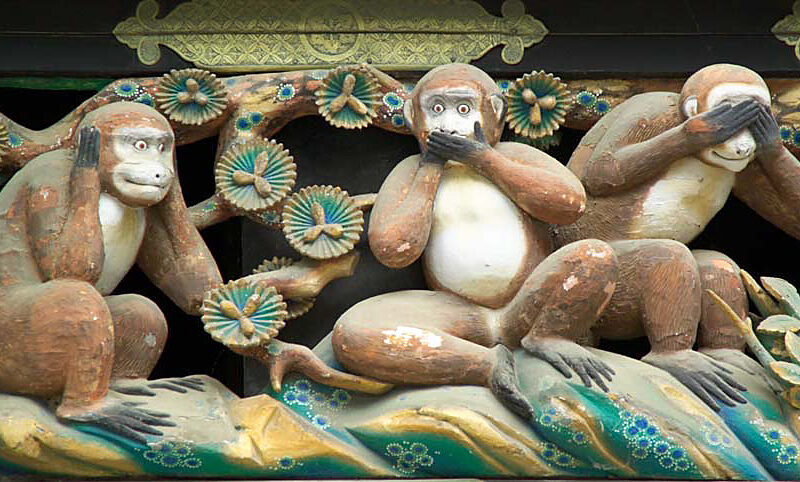
Governments at the local, state, and federal level increasingly collect troves of sensitive information about where we go, what we read, who we know, what we buy, and more. Some people say they don't care about this silent and ever present surveillance. They have nothing to hide, they say.
But acquiescing to losing control over information about you is effectively rolling over and accepting the fact that untold numbers of people and institutions, not you, control your life. Information is power. When people behind closed doors possess information about your private life, usually unbeknownst to you, they have the ability to wield substantial power to control and manipulate you, often without your knowledge.
"I am not so interesting," you protest. Maybe you're right. The fact that unknown numbers of unknowns have the knowledge and therefore the power to hurt you doesn't mean they'll always use it (or that they'll use it against you). But do you want to run that risk? Is that a risk you are willing to concede about your children's privacy, or your parents'? Is that a risk you are willing to accept for the climate activists fighting dirty energy subsidies, or the young kids in your neighborhood getting shaken down by the police?
Even if you lead a quiet life, and don't meddle in politics or challenge powerful people (or are lucky enough to never have to deal with fracking on your neighbor's land, ), are you willing to run the risk that someday you might end up in a power struggle--however big or small--with someone who controls or can access sensitive information about your private life? (If you have ever dated or would ever consider dating anyone who works in IT at a major tech company, or for law enforcement or in intelligence, you should be particularly wary.)
If you aren't doing anything wrong, what do you have to hide? Here is a very, very incomplete list:
- Sexual (aka sexts) you send to lovers, partners, and spouses;
- Emails to lawyers containing information about ongoing litigation against any part of the government, or emails describing any impropriety like an affair or something as simple as playing hooky from work and calling in sick;
- Phone calls and visits to abortion clinics, sexual health centers, gun stores, LGBT community centers, union shops, domestic violence organizations, suicide hotlines, and journalists;
- Banking or credit card records showing that you purchased sex toys, gonorrhea medication, and four hundred dollars worth of stuff from a Furry website, or donated to non-profit organizations like the ACLU or Planned Parenthood;
- Internet metadata revealing your porn viewing habits and search terms, for example "herpes symptoms", "what to do if you think your boyfriend is cheating on you", "how to cheat on your boyfriend and get away with it", or "I wish I had never had kids."
As you can see, there's plenty of information floating around in the ether, held by private corporations and collected by government agencies (often ), that you want to remain private. You aren't breaking the law and you don't deserve to be violated, but this information is not under your control.
All it takes for your privacy to be violated in a way that could get you fired from your job, exiled from your community, in trouble with your friends or family, or kicked out of your house is for one of the potentially of people who have access to this kind of information to reveal it to someone you'd rather not see it. You might never even know what happened, but suddenly you are out of a job, or find yourself shunned by coworkers or friends.
If you think this is an impossible set of scenarios, read up on the history of the FBI under J. Edgar Hoover, a man infamous for his tyrannical obsession with embarrassing and slandering his personal and political enemies. The information he provided, in secret, to Joseph McCarthy's House Un-American Activities Committee got many law-abiding people fired from their jobs, and in far too many cases ruined their lives.
Some people say that privacy is obsolete because many of us blab on and on about our every waking thought on Twitter, Facebook, and other social media sites. But that assessment belies a fundamental misunderstanding about what privacy means.
Privacy isn't the same as secrecy. Privacy is about controlling information about you, including who knows what, under what circumstances, and when. Privacy is about being in control and in charge of your own life, and having the power to shape other people's perceptions of you. Today, we are effectively at the mercy of millions of unknown people who lord over us the power to destroy our reputations, relationships, and professional lives with the click of a button.
Do you still feel like you have nothing to hide?
See also this post on the "nothing to hide" argument by Jay Stanley.
This is an edited version of a post first published on the ACLU of Massachusetts' blog.

